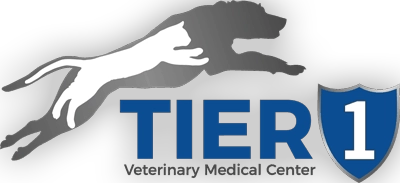As many of you gear up for hunting season, I know your 4-legged hunting buddies are chomping at the bit to join you. Whether you’re heading out to moose camp, gearing up for waterfowl, or adventuring in the mountains, the call to go is in the air, and hopefully not in the water. There is a “bug” out there, most often found in contaminated water that burrows into your dog’s gut and causes raging diarrhea, weight loss and sometimes vomiting, lack of appetite, and depression.
Giardia is a single-cell organism carried by wildlife and shed in their feces, contaminating the ground, vegetation, and especially the water. Contaminated water is the most common place your pooch will encounter this bug, so bird dogs are especially vulnerable. Realistically, given most dog’s affinity for drinking whatever they find, especially when you’re remote in the bush, they are all at risk. Unfortunately, it can be picked up eating contaminated vegetation and even just sniffing contaminated ground. Even worse, they don’t always show symptoms and can potentially spread it to your other critters at home. Some types of giardia can even spread from pets to people. Giardia in people is also commonly called “Beaver Fever” and “Traveler’s Diarrhea.”
Unfortunately, there is little you can do to prevent infection in your dogs, especially in dogs frequently exposed to high-risk areas like hunting dogs. The best things you can do are:
- Make yourself aware of its presence.
- Know how to recognize the symptoms.
- Minimize the risks when possible.
- Seek treatment or diagnostics when necessary.
Symptoms of Giardia
Giardia most commonly manifests with diarrhea. The stool can sometimes be green. Another sign is a large amount of mucus or blood in the stool. In some cases, affected dogs can also develop vomiting, abdominal pain, lose their appetite, and become depressed. These symptoms can wax and wane intermittently. Symptoms caused by giardia usually take 5-14 days after exposure to show up.
If one of your dogs develops symptoms after that dog or another in the household has been out working or adventuring, consider a visit to the vet and ask about a fecal check. Unfortunately for us, to catch the bug in action you have to go to the source…bring a sample with you.
Minimizing Risks
Hunting dogs were bred and have been meticulously trained to do just that: hunt. I plan to take mine hunting with me, and that means time in the water and possible exposure to giardia. I know the risks and watch carefully for any symptoms.
With that being said, when I can I bring an extra bottle of water with me when I take my dogs hiking to try to decrease the risk of exposure. I also try to discourage my pups from drinking from creeks, ponds, and puddles if possible. If any of my dogs develop diarrhea, the first thing I do is bring in a fecal. Picking up any stool from that dog immediately can keep it from spreading to other pets. Finally, make sure to give the pup a good bath and get rid of any diarrhea contamination on their coats, which can keep them from reinfecting themselves or others.
Giardia Treatment
Treatment of Giardia is relatively straightforward and involves dewormers, antibiotics, or a combination of the two. In severe cases when dehydration or other symptoms set in, they can also be treated with fluids, probiotics, anti-nausea medications, and gastric protectants depending on the recommendations of your veterinarian. It’s always best to be proactive and get out in front of the issue, or behind it with a bag, so to speak.
Tier 1 Veterinary Medical Center in Palmer is Alaska’s only comprehensive animal hospital. We are available by appointment, in addition to accepting emergencies and walk-ins. With CT, MRI, and Ultrasound available on-site, our facility provides advanced treatment options for your pet. Contact us today to schedule an appointment.
